Navigating the nuances of non-compete clauses can be overwhelming, especially when you're considering a new job opportunity. These legal stipulations can significantly impact your career path, so it's crucial to review them carefully to understand their implications. In this article, we'll break down what to look for in non-compete agreements and how they might affect your future employment options. Stay tuned for expert tips that will empower you to make informed decisions about your career!

Clarity of geographical scope
A non-compete clause in employment contracts often specifies the geographical scope where the restriction applies. Clarity regarding the defined area is crucial to avoid ambiguity and potential legal disputes. For instance, a non-compete clause stating "within 50 miles of the company headquarters in New York City" provides a specific radius contrasts with vague terms like "within the region." Precise definitions help determine enforceability, especially in states like California, known for limiting such agreements. Additionally, understanding what constitutes a competing business within the scope is vital for the employee's future employment opportunities. Legal reviews of geographic limitations can aid clarity, ensuring both parties are aware of rights and constraints post-employment.
Duration and time limitations
The non-compete clause in employment contracts often specifies duration and geographical limitations that restrict an employee's ability to engage in similar work with competitors after leaving a position. Common time frames range from six months to two years, depending on industry standards and state laws. In regions like California, non-compete agreements are generally unenforceable, highlighting the importance of local legislation in determining validity. Employers typically aim for the shortest duration necessary to protect legitimate business interests, while employees seek to avoid overly restrictive terms that impair future employment opportunities. Furthermore, clauses may also include specific industries or job roles affected, which could lead to significant career limitations for the affected individual.
Specificity of restricted activities
The employment non-compete clause outlines detailed restrictions on specific activities post-employment. For instance, the clause may indicate that the employee is prohibited from engaging with direct competitors, defined as companies within a specified industry sector, such as technology or finance, for a duration of six months after termination. Geographic limitations might restrict the employee from working in key markets like New York City or Silicon Valley. Additionally, the clause could specify confidentiality agreements, preventing the dissemination of proprietary information, trade secrets, or client lists developed during employment. This clarity is essential to ascertain which specific business activities and sectors are restricted, aligning with enforceability standards in applicable jurisdictions.
Consideration or compensation offered
Employers often include non-compete clauses in employment contracts to restrict employees from working with competitors for a specified period after leaving the organization. Consideration or compensation for such clauses can vary significantly, often depending on the industry, position, and negotiation dynamics. For example, during employment, a company may offer monetary compensation or a signing bonus to incentivize compliance with the non-compete agreement. Additionally, companies sometimes provide health insurance benefits, professional development opportunities, or stock options as consideration for the restrictions imposed by the non-compete clause. Understanding these elements is crucial for employees to assess the fairness and legality of the agreement, especially since many states have specific regulations governing non-compete enforceability. Legal advice may be beneficial in reviewing these clauses before signing.
Legal enforceability and jurisdiction
When assessing the legal enforceability of a non-compete clause (NCC), factors such as jurisdiction, duration, and geographical scope play critical roles. Jurisdictions like California have strict limitations on non-compete agreements, rendering many unenforceable under the California Business and Professions Code. In contrast, states like Texas allow NCCs provided they contain reasonable restrictions, typically no longer than two years. The specific language utilized in the NCC significantly affects its strength in legal contexts, underscoring the importance of precision in drafting. Courts also evaluate whether the clause protects legitimate business interests, such as trade secrets and key client relationships, which can vary across industries. Regular reviews of such agreements can mitigate risks, ensuring alignment with evolving state laws and maintaining enforceability in relevant jurisdictions.

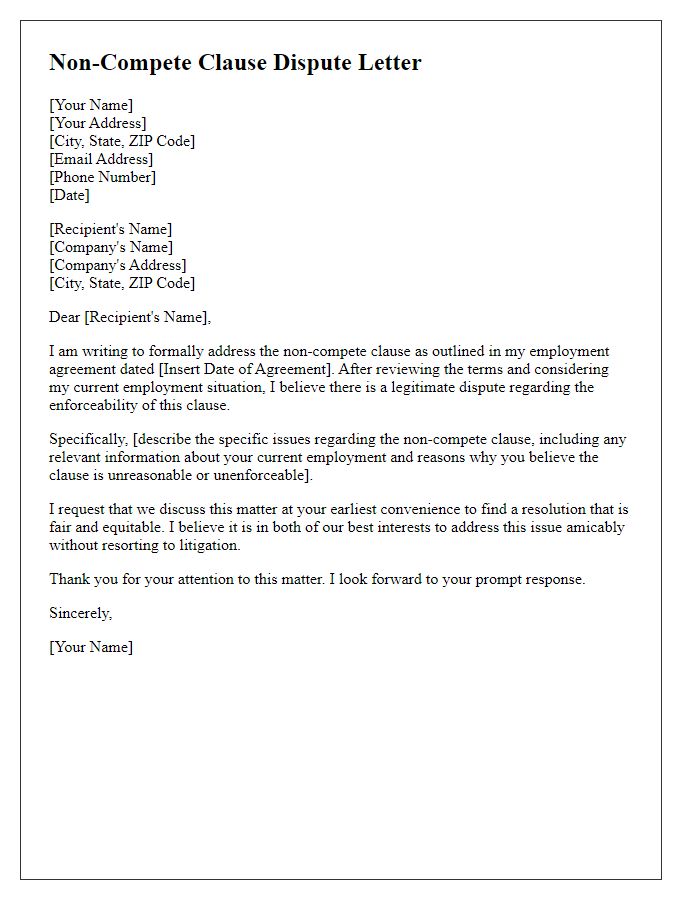
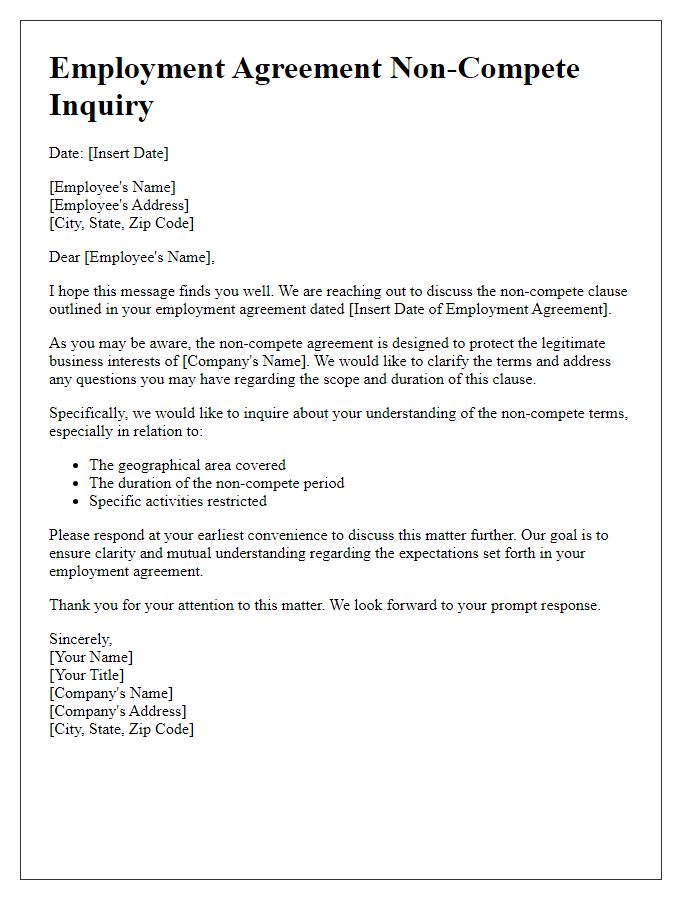
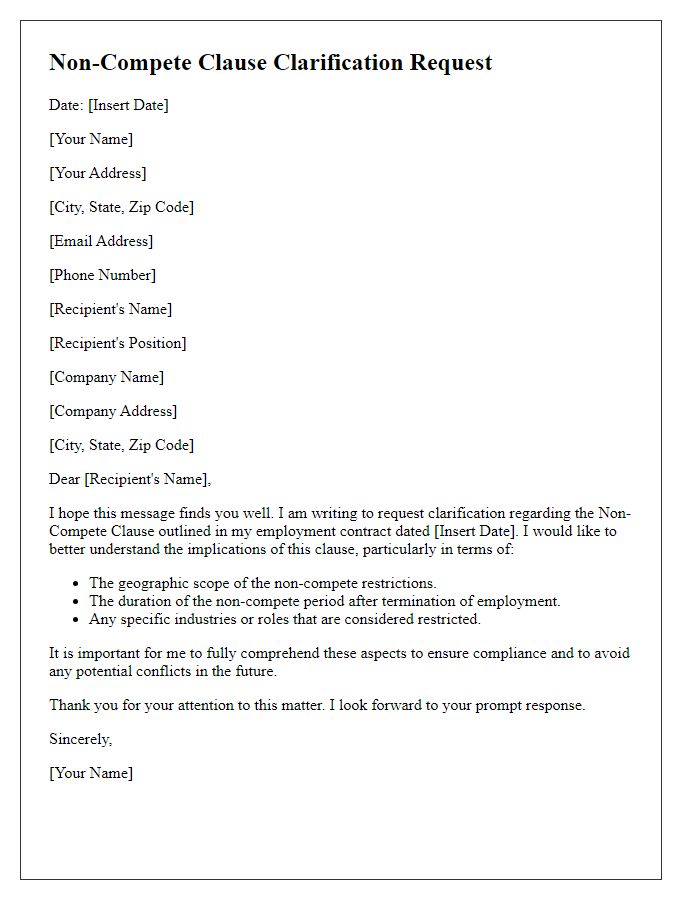
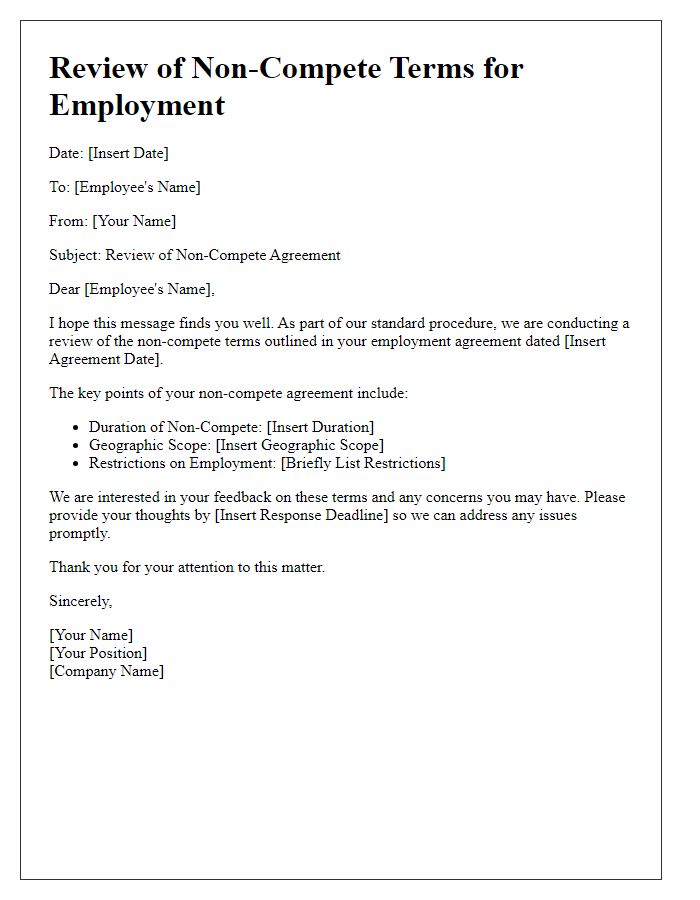
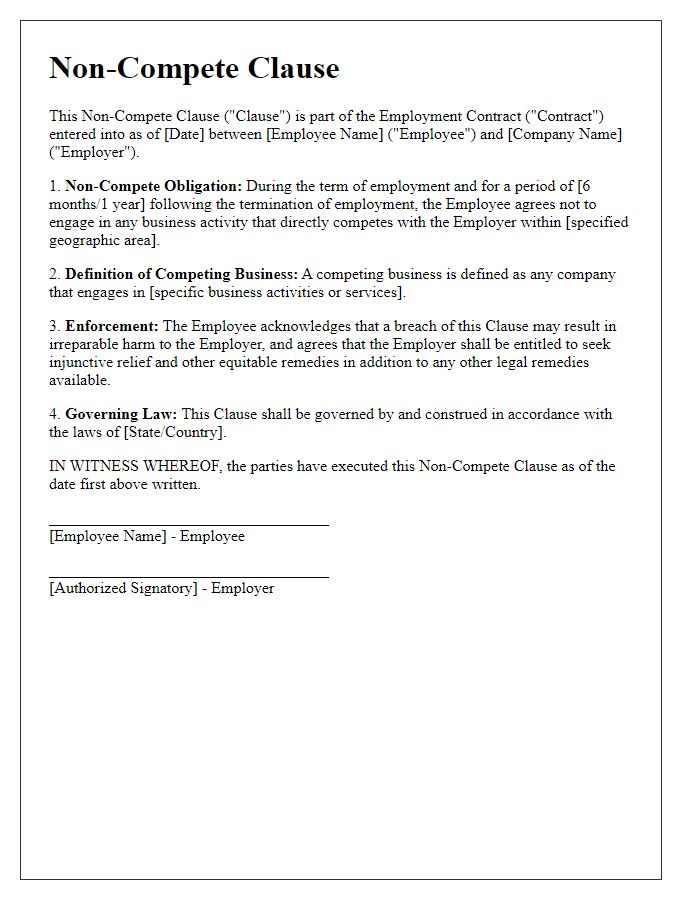
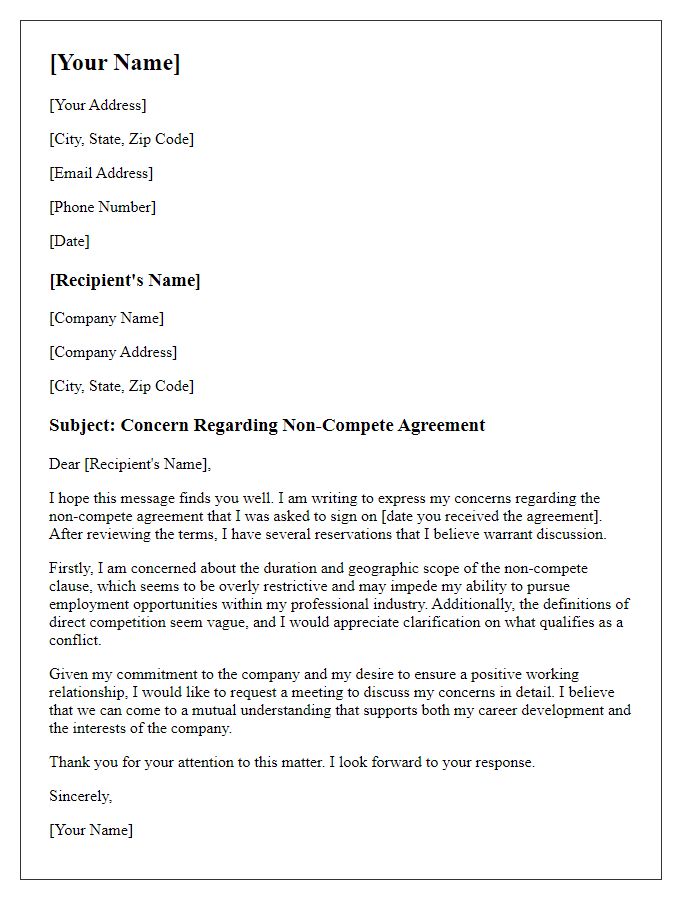
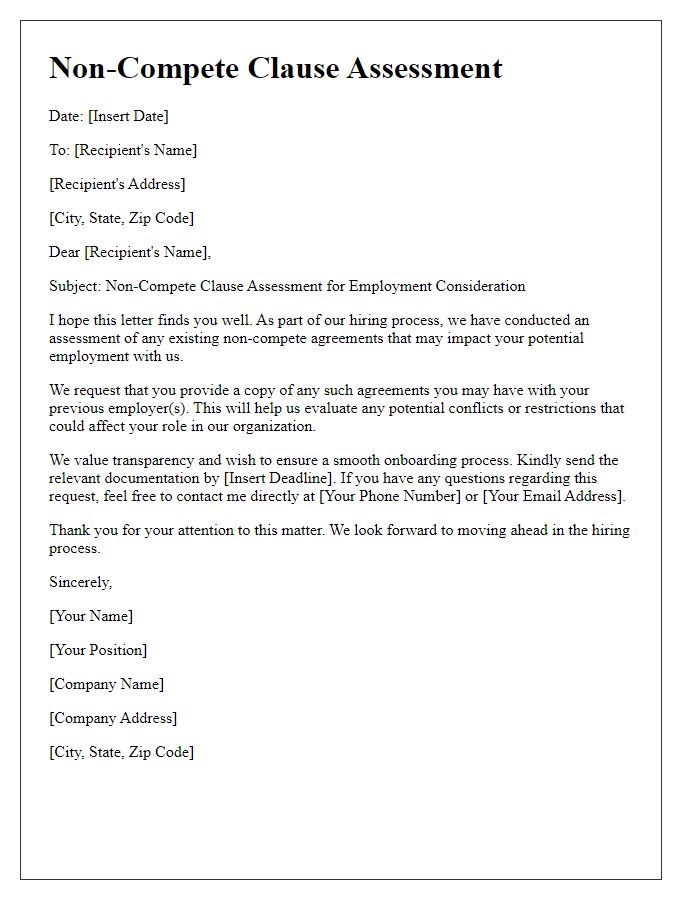
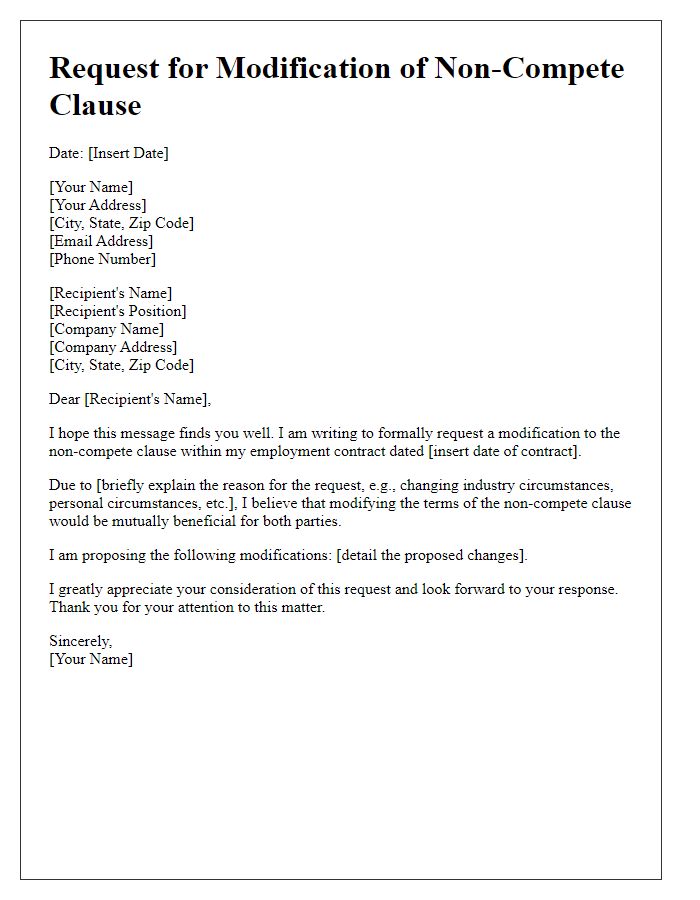
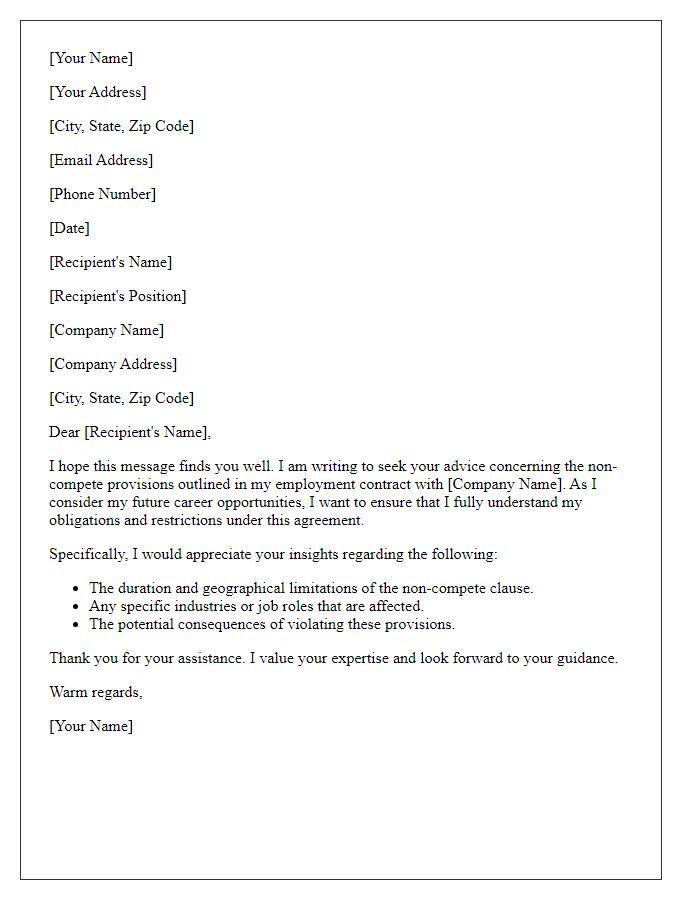
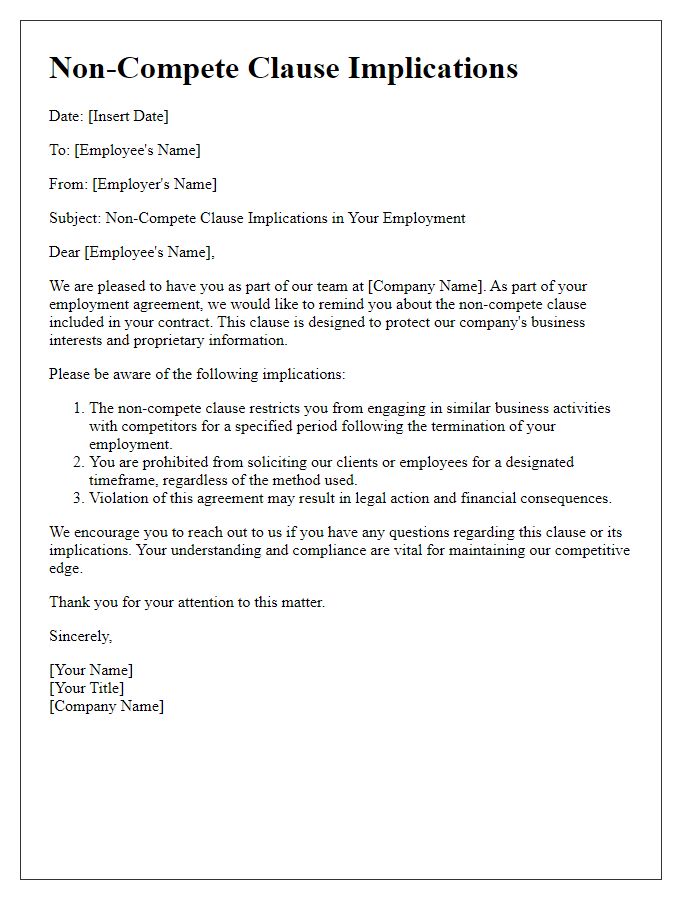


Comments